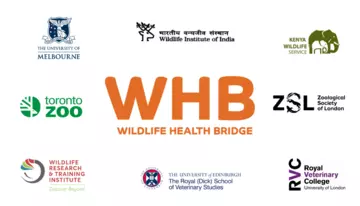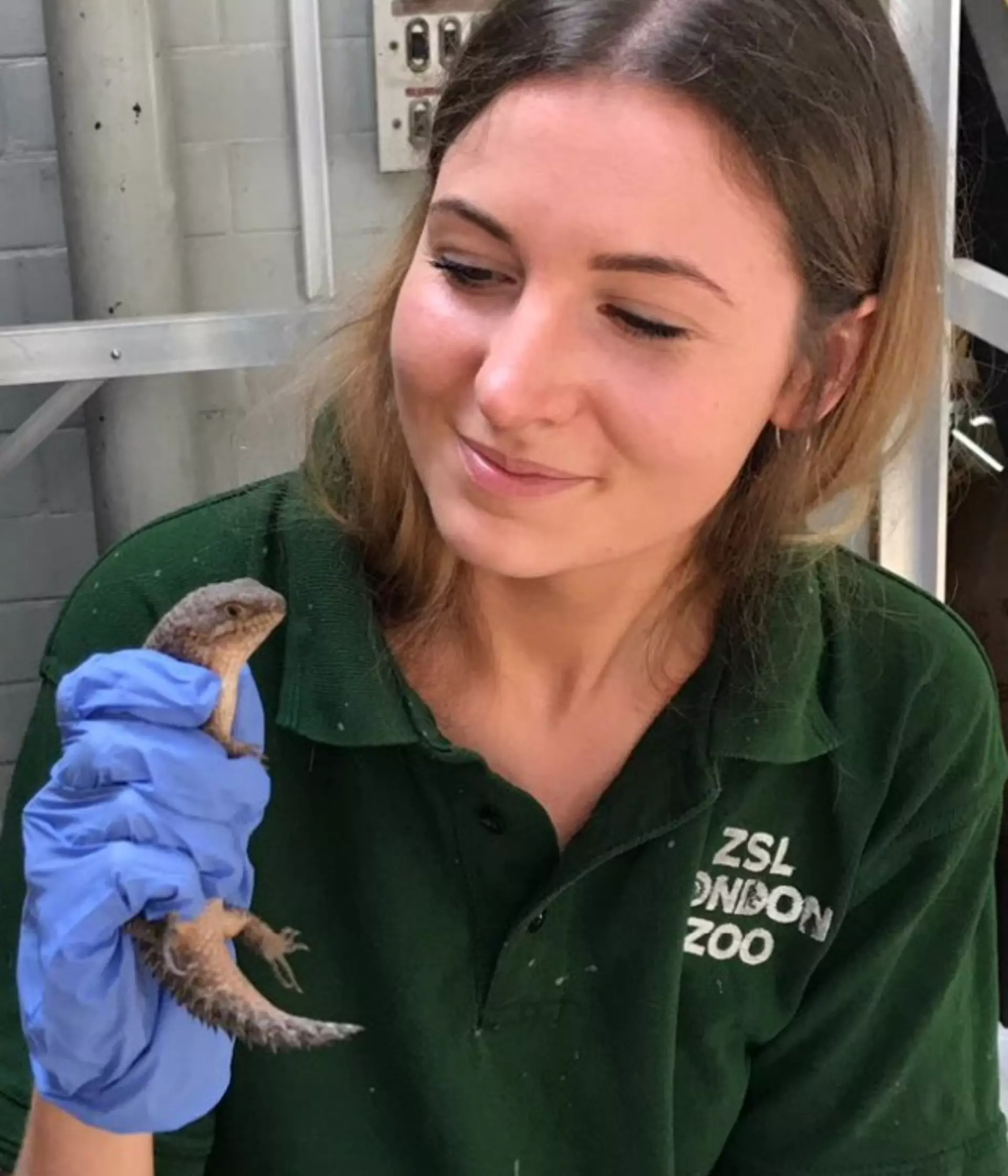
Alexandra Thomas
PhD Student
The Wildlife Health Bridge (WHB) is a consortium of educational institutions with a shared interest in wildlife conservation. Our goal is to increase the capacity of wildlife health professionals in biodiverse, low-income countries.
Partner institutions include the Zoological Society of London, the Royal Veterinary College, the Wildlife Institute of India, the University of Edinburgh, the University of Melbourne, Toronto Zoo, the Kenya Wildlife Service, and the Wildlife Research & Training Institute.
Established in 2009, the WHB provides educational support and training opportunities to wildlife health professionals, particularly those working in resource-constrained regions. Our vision is to foster a global network of highly skilled wildlife health professionals, working in synergy to advance the field of wildlife health and conservation.

Objectives
The primary goal of the Wildlife Health Bridge project is to enhance the expertise and knowledge of wildlife health professionals in biodiverse, low- and middle-income countries. This is achieved by using a collaborative, integrated approach to education that the strengths and knowledge networks of our diverse partnership.
Specific objectives include:
- Deliver high-quality education in wildlife health, ecosystem health, and wildlife biology, particularly to students from biodiverse countries. This education will be tailored to the practical needs of wildlife health professionals working in resource-constrained settings.
- Facilitate student exchange between collaborating countries for research studies in wildlife health.
- Establish a global graduate network of wildlife health professionals for the purpose of enabling networking among wildlife health professionals and facilitating communication and information sharing between Bridge institutions and alumni.
By implementing these measures, we can significantly contribute to the health of free-living wild animals and the natural ecosystems they inhabit.
Postgraduate Courses
The Wildlife Health Bridge offers four postgraduate courses designed for both veterinarians and biologists.
Upon graduation, students are invited to join the Wild Animal Alumni (WAA) network, a global community of over 600 wildlife professionals from 60+ countries. This diverse group includes wild animal managers, field veterinarians, zoo veterinarians, rehabilitation specialists, academics, policy advisors, conservationists, zoological professionals, pathologists, and many others.
WAA fosters collaboration and knowledge exchange among its members, aiming to advance wild animal health practices and research worldwide.
Please see below for more detailed information on the courses
The Zoological Society of London (ZSL), the Wildlife Institute of India (WII), the Royal Veterinary College, the University of Edinburgh (UoE), the University of Melbourne (UoM), Toronto Zoo, the Kenya Wildlife Service, and the Wildlife Research Training Institute have joined forces to address the urgent need for wildlife health expertise in important biodiversity-rich regions, ehich can also often hotspots for wildlife diseases and human-wildlife conflict.
To tackle these challenges, the 2.5-week field course offers participants hands-on training in places such as Rajasthan, India, and Naivasha, Kenya. The program focuses on practical and theoretical learning, equipping participants with the skills to address wildlife health issues, investigate emerging diseases, and promote the health and welfare of wild animals.
The Masters in Wild Animal Health, a joint program by the Royal Veterinary College and the Zoological Society of London, equips qualified veterinarians with the skills needed to address critical wildlife health challenges. Since 1994, over 274 graduates from 55 countries have completed this program.
The course offers in-depth training in wild animal management, disease epidemiology, treatment, and control. It addresses the increasing demand for veterinary expertise in areas such as conservation, emerging infectious diseases, and captive animal care.
The one-year full-time program, starting in the autumn, combines theoretical and practical learning at various locations, including the Zoological Society of London, Whipsnade Zoo, and Royal Veterinary College campuses. Both Certificate and Diploma levels are available.
The MSc in Wild Animal Biology, offered by the Zoological Society of London and the Royal Veterinary College, is designed for non-veterinary biology graduates interested in wildlife health and welfare. This one-year, full-time course provides practical experience with wild animals, training in research methods, and exposure to cutting-edge wildlife research.
Students benefit from learning alongside veterinary students in the MSc in Wild Animal Health and from internationally renowned experts. The program combines lectures, seminars, tutorials, problem-based learning, modular examinations and a summer research project prior to the final course assessment. The course covers a range of topics, including mammalogy, herpetology, ornithology, epidemiology, infectious diseases, conservation, and management
The Conservation Medicine programme equips veterinarians with the skills and knowledge to excel in wildlife conservation. Suitable for veterinarians with an intertest in conservation, wildlife health and ecological health - this part-time, flexible, online program offers a world-class education while accommodating busy schedules.
Through a blend of theoretical and practical learning, participants will gain expertise in wildlife health, ecological health, and conservation practices. They will have the opportunity to learn from renowned experts and build global networks, opening doors to exciting potential career opportunities in academia, NGOs, government veterinary positions, and wildlife conservation projects.
